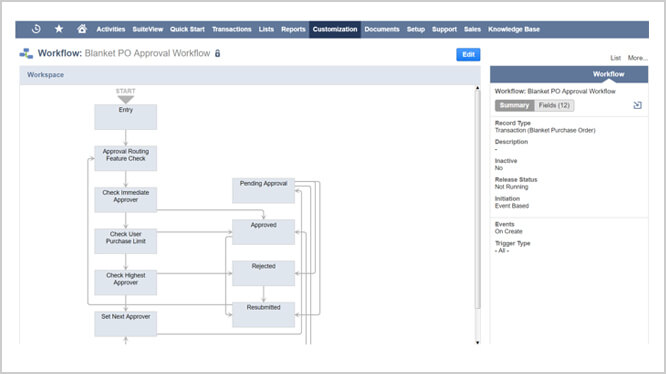Workflow Engine SuiteFlow
Home / Workflow Engine SuiteFlow
Menu
Workflow Management Automates Your Business for Maximum Efficiency and Flexibility
SuiteFlow provides developers and customers with easy-to-use point-and-click tools to customize and automate business processes. Business processes such as lead nurturing, collections management, sales discounting approvals, purchase order approvals and more can be created easily with SuiteFlow.

Key Benefits
- Rapidly deploy workflows in response to changing business needs
- Automate business processes such as lead nurturing, sales discounting approvals, travel authorizations and more
- Improve responsiveness by enabling continual tracking of various steps in a business process
- Maximize business agility by allowing ad hoc workflow changes.
Key Features
- Easy-to-Use Graphical Workflow Management
- Workflow Manager provides a complete graphical point-and-click solution that allows you to build and maintain workflows
- Quickly assemble rules-based workflows to streamline business processes such as lead nurturing, sales discounting or purchase order approvals, collections management and more
- Easily create, view, edit and manage workflow states, actions, rules and branching conditions.
- Powerful Workflow Capabilities
- Easily specify the triggering events that initiate a workflow, such as when records are viewed, created, or updated—or schedule workflows to run automatically
- Manage the states the record will pass through in the course of the workflow, and define conditional actions to occur when the record enters each state—such as when a marketing lead nurturing email changes from having been sent to subsequently opened.
































